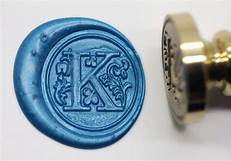
Growing up, my mother did a lot of canning of food in jars.
She did fruits, vegetables, and jams; all of them delicious and something to look forward to in the cold winter months.
In order for the food to be preserved until it was time to eat it, the jars had to be properly sealed with lids.
We, as believers, were properly sealed by the Holy Spirit the moment we believed in Christ as our Savior.
We read this in Ephesians 1:13:
“In Him, you also, after listening to the message of truth, the gospel of your salvation—having also believed, you were sealed in Him with the Holy Spirit of promise, who is given as a pledge of our inheritance, with a view to the redemption of God’s own possession, to the praise of His glory.”
The sealing of the Holy Spirit provides us with a guarantee of our eternal security.
Seals, at the time Paul wrote, indicated:
- security (Matt. 27:66; Eph. 4:30),
- authentication and approval (John 6:27),
- genuineness (John 3:33), and
- ownership (2 Cor.1:22; Rev. 7:2; 9:4).
We see in Ephesians 4:30 that we are sealed so we can be delivered to heaven some day:
“Do not grieve the Holy Spirit of God, by whom you were sealed for the day of redemption.”
The day of redemption is the Rapture.
God seals believers by giving us the indwelling Holy Spirit, who keeps us in Christ, which is a guarantee we will be safely delivered to heaven by death or the Rapture.
The Greek word for pledge here was a regular feature of the Greek business world.
The pledge was a part of the purchase price of anything paid in advance as a guarantee that the rest of the price would be paid at a later date.
The fact that we possess the Holy Spirit now is a guarantee from the Father to us that the rest of our salvation will come in the future.
We experience salvation in three stages:
- we have been saved in Christ and released from sin’s guilt (Eph.1:7),
- we are being saved as the Spirit empowers us to have victory over sin and grow more like Christ (Rom. 8:1-4),
- and we will be saved when Christ returns for us at the Rapture and we are released from sin’s presence (Rom. 8:23; Phil. 3:20-21), and become completely like Christ.
Both Ephesus and Corinth were great centers of the lumber industry in ancient times.
A raft of logs would be floated from the Black Sea and when they got to Ephesus or Corinth, the different lumber merchants would come and look over the logs and make their selections of which ones they wanted.
One would say, “I will take these,” and another, “I’ll buy those over there.”
Then they would do two things.
They would cut a certain wedge upon each log that they had bought which marked that log as bought and paid for and to show who it belonged to.
This was called the seal.
The second thing they would do was to put a down payment on the logs – a deposit – and when the logs were delivered or picked up, they would then pay the rest of the money.
May we thank the Lord we are sealed for delivery!
Blessings!
Pastor Ken Keeler, Director of Church Ministries
